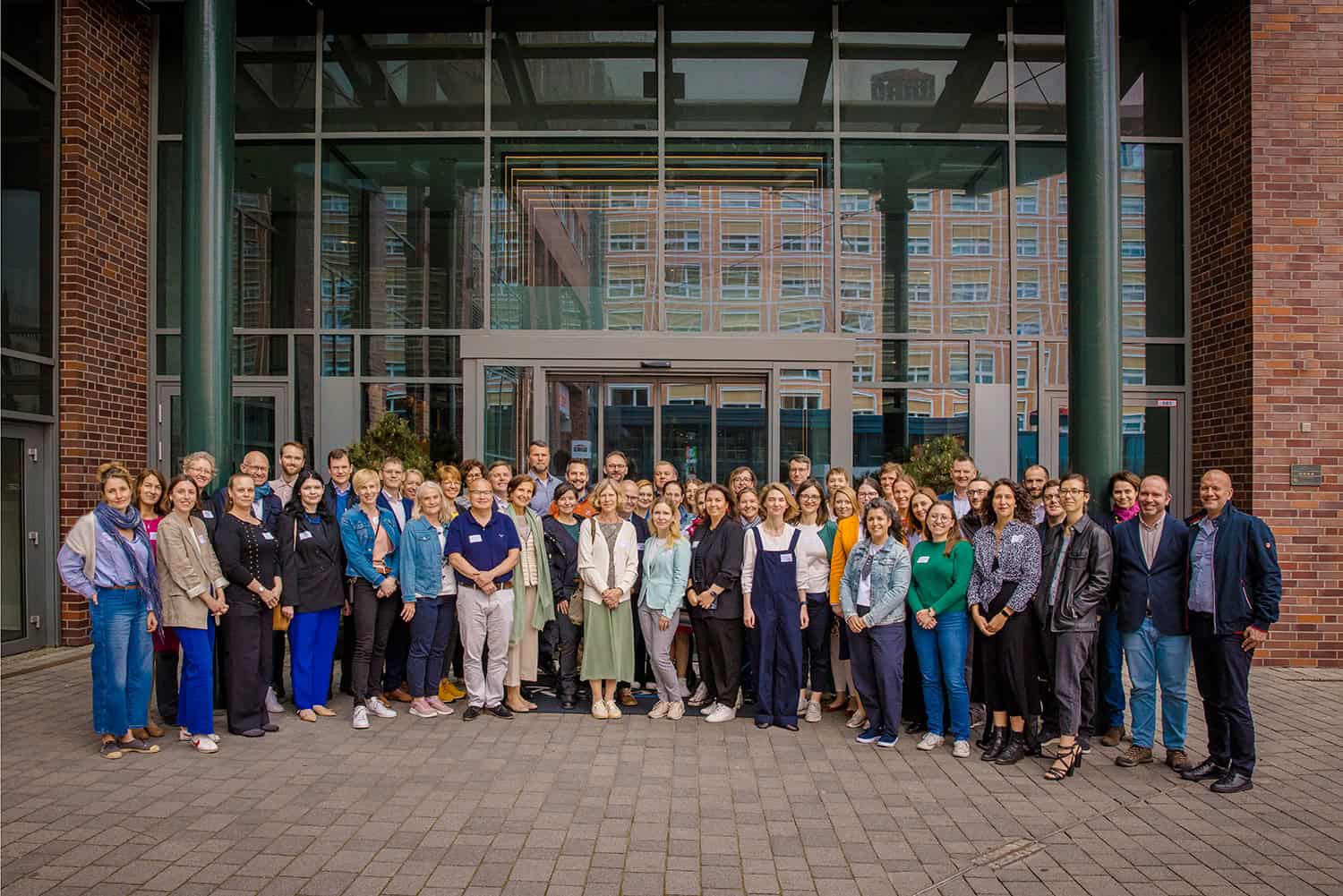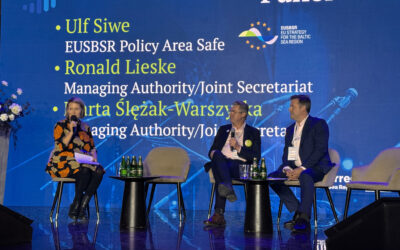
16 August 2024
Interreg as a trainee
written by susie hacquin
Acquiring scientific knowledge
When I arrived, I had no real knowledge of the Baltic Sea and the region around it, I did not know well the functioning of Interreg: I only had academic knowledge and vague ideas of how it would work.
In February, the third call for projects had just opened, and I arrived in a fast-paced office. The calendar was full every week (unlike my last weeks in the summer) and my head was spinning with all those new abbreviations and technical words. My colleagues took the time to introduce me to the organisation of the office, the calls, and the work here in general. Because the call for projects had just opened, the Managing Authority/Joint Secretariat (MA/JS) organised several webinars explaining the whole process to applicants, which I gladly attended.
In my first “mission”, I got to discover more about the projects. At first, I felt like they were handling crucial but very abstract topics: building networks and exchanging knowledge. But reading the project pages and project news made me realise how concrete it actually was and what real changes they were bringing to the Baltic Sea Region. For example, I remember that one of the first projects I got interested in was NURSECOAST-II. The project had made a nice video that I was supposed to advertise on our social media channels. Diving deeper into the project page, I understood that NURSECOAST-II helps municipalities reduce and manage the increase in wastewater due to tourism!
The more work I had, the more I discovered all the actors in the process: not only the MA/JS and the Monitoring Committee, but also project partners and associated organisations, the Directorate-General for Regional and Urban Policy of the European Commission (DG REGIO), Interact, the other Interregs and local actors like the German region of Mecklenburg-Vorpommern, but also Members of the European Parliament! I was discovering a whole new universe, through the lens of Interreg Baltic Sea Region.
One of the tasks was to write articles for the Interreg Baltic Sea Region portal, which I welcomed both for my curious nature and the chance to dive deeper into specific topics. During this time, I had the opportunity to interview the project managers and communication managers of 8 different projects. These face-to-face interviews showed me how concrete the work done by the projects is. And this is also how I learned about eutrophication in lakes, various water treatments, glass fiber waste, urban planning, and the work to help children overcome traumas.
On top of gaining knowledge about the region, the actors, and how people work every day for a better future, I can now proudly say that the EUSBSR is the EU Strategy for the Baltic Sea Region and FOs refers to our Finance Officers.
A human experience
Only talking about PFAS (Per- and polyfluoroalkyl substances) and eutrophication in lakes would be leaving out a big part of my overall experience at the Interreg Baltic Sea Region. Before being an interesting traineeship, it was a very enriching human experience.
I was already comfortable working in international settings because I volunteered with an organisation that helped foreign students (ESN Strasbourg) and spent a lot of time living abroad, but this was a whole new level. I was working and interacting daily with colleagues from across Europe and beyond. The MA/JS truly embodies the spirit of Interreg, bringing together people from diverse backgrounds, just like the projects that focus on transnational cooperation. It is incredibly enriching to discuss culture, politics, history, and even German administration with people who have such varied experiences. More than just colleagues, the MA/JS feels like a big family.
I gained a deeper understanding of the Interreg world during the cross-program meeting in Rostock in May, which included Interreg Central Europe, Interreg North Sea, and Interreg Alpine Space. Colleagues from the joint secretariats of these programmes came together to share and discuss best practices. It was then that I realized how, despite sharing the same name, Interreg Programmes can be managed in very different ways. Yet, in this international setting, we were all able to connect and understand each other.
Lastly, I must say that I was warmly welcomed by all my colleagues at the MA/JS of Interreg Baltic Sea Region. My social life was filled with moments of enjoying lasagna from Grüne Kombüse and pizza from l’Osteria, along with the occasional office activities.
As a conclusion to this article, I would like to come back to this thing that several colleagues warned me about: “Once you step into the Interreg world, it is difficult to leave”. Although I was initially a bit sceptical, I now completely understand why people choose to stay in this welcoming environment, where they can have a meaningful job and contribute to the future. I’m very grateful for the opportunity to work at Interreg Baltic Sea Region, and I want to thank all my colleagues for making it feel like home.
More recent news
Climate-neutral future at hand for Baltic Sea region cities
Turning a city into a climate-neutral one requires knowledgeable people, thorough planning and solid financial resources. But how can cities manage this transition smoothly? The Interreg project Climate-4-Case guides cities around the Baltic Sea on how to do that right.
Designing Interreg Baltic Sea Region that belongs to everyone
10 December 2025 Designing Interreg Baltic Sea Region that belongs to everyone Written by Eeva Rantama What if the next Interreg Baltic Sea Region...
Monitoring the Programme’s progress: transnational cooperation in the making
Representatives from nine Programme area countries gathered in Berlin on 19-20 November 2025 to review the progress of the Programme’s implementation and start preparing for the post-2027 period.
Beyond Borders: Turning Interreg Results into Policy Action
At this year’s EUSBSR Annual Forum in Sopot, the session “Beyond Borders: Interreg Results in Action for a Resilient and Safe Baltic Sea Region” showcased how Interreg Baltic Sea Region projects are transforming challenges into policy-relevant results that strengthen resilience, safety, and cooperation across the region. The session brought together project partners, EUSBSR policy area coordinators, members of the Programme Monitoring Committee and young participants to explore what it takes to turn project outcomes into lasting policy impact.






